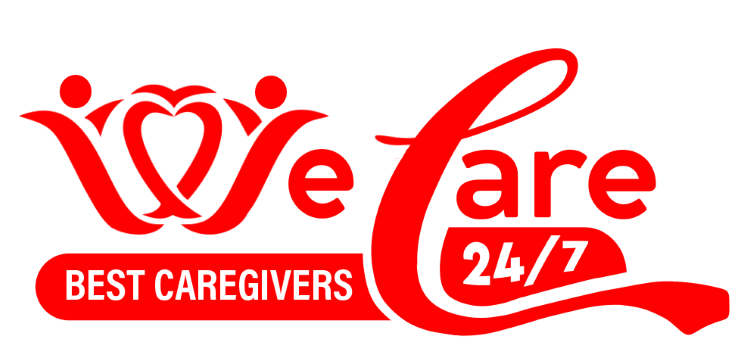A Senior’s Guide to Power of Attorney & Advance Directives in NJ

Planning for Tomorrow: Your Guide to Power of Attorney & Advance Directives in New Jersey
Navigating the complexities of life as we age involves thoughtful preparation, particularly concerning future healthcare and financial decisions. For seniors and their families in New Jersey, understanding legal instruments such as a Power of Attorney (POA) and Advance Directives is paramount. These documents offer peace of mind, ensuring your wishes are honored and your affairs are managed responsibly, even if you are unable to communicate them yourself.
At WeCare Home Caregivers, we believe in empowering New Jersey residents with the knowledge to make informed choices about their future. This comprehensive guide will explain the intricacies of Power of Attorney and Advance Directives, highlighting their significance within the Garden State’s legal framework. Thoughtful planning today provides security for tomorrow.
Understanding Power of Attorney (POA) in New Jersey
A Power of Attorney is a legal document that grants one individual (the ‘agent’ or ‘attorney-in-fact’) the authority to act on behalf of another person (the ‘principal’) in financial and legal matters. This authority can be broad or specific, depending on the principal’s needs and wishes. For seniors, a POA can be an indispensable tool for managing assets, paying bills, or making important financial decisions if they become incapacitated.
Establishing a POA can prevent the need for court-appointed guardianship, a process that can be time-consuming, expensive, and may result in someone unfamiliar with your preferences making decisions for you. With a POA, you maintain control by choosing who will manage your affairs and defining the scope of their authority.
Types of Power of Attorney Relevant to New Jersey Seniors
While various types of POAs exist, certain ones are particularly pertinent for long-term planning in New Jersey:
- Durable Power of Attorney for Financial Matters: This is the most common and recommended type for seniors. A durable POA remains effective even if the principal becomes incapacitated. Without the ‘durable’ clause, the POA would terminate upon the principal’s incapacitation, defeating a primary purpose of having one for future planning.
- Limited or Special Power of Attorney: This grants authority for a specific act or for a limited period. For instance, you might grant a limited POA for someone to sell a specific property on your behalf, after which the POA expires.
- Springing Power of Attorney: This type of POA becomes effective only upon the occurrence of a specified event, such as the principal’s incapacitation. While it might seem appealing, determining when the ‘springing’ event has occurred can sometimes lead to disputes or delays in accessing funds, making a Durable POA often more straightforward.
Choosing Your Agent (Attorney-in-Fact)
Selecting your agent is a decision that requires careful consideration. This individual will have access to your financial accounts and will make decisions that significantly impact your well-being. Your agent should be someone you trust implicitly, who is financially responsible, and capable of handling administrative tasks. It is wise to name at least one successor agent in case your primary choice is unable or unwilling to serve.
Effectiveness and Revocation of a Financial POA
A Durable Power of Attorney for financial matters typically becomes effective immediately upon signing unless otherwise specified (as with a springing POA). The principal must be of sound mind at the time of signing. A POA can be revoked by the principal at any time, as long as they are mentally competent. It also automatically terminates upon the principal’s death.
In New Jersey, a Power of Attorney must be in writing, signed by the principal, and acknowledged before a notary public or signed by two witnesses. While witness requirements are less common for POAs in NJ compared to some other states, notarization is essential to ensure its legality and acceptance by financial institutions. You can find more information on New Jersey’s Uniform Power of Attorney Act from resources like the NJ Office of Attorney General.
Deciphering Advance Directives in New Jersey
Advance Directives, sometimes referred to as ‘living wills’ or ‘healthcare directives,’ are legal documents that allow you to express your wishes regarding medical treatment in situations where you are unable to communicate them yourself. These directives ensure your healthcare preferences are respected, providing clear guidance to medical professionals and relieving your family of the burden of making difficult decisions under duress.
For seniors in New Jersey, Advance Directives are a powerful way to retain autonomy over healthcare decisions, especially concerning end-of-life care. They are governed by the New Jersey Advance Directives for Health Care Act, which provides a framework for how these documents are created and implemented.
Key Components of Advance Directives in New Jersey
Advance Directives typically encompass two main parts, although they are often combined into a single document:
Proxy Directive (Healthcare Proxy or Medical Power of Attorney)
The Proxy Directive allows you to designate a healthcare representative (also known as an agent or proxy) to make medical decisions on your behalf if you become incapacitated. This person should be someone who understands your values and wishes regarding medical care. Your healthcare representative can consult with doctors and make choices about treatments, surgeries, medications, and other medical interventions, always striving to act in accordance with your stated preferences or your best interests if your wishes are unknown.
- Responsibilities of the Proxy: Your chosen healthcare proxy will interpret your wishes, communicate with medical staff, and make decisions consistent with your values. They can consent to or refuse medical treatments, including life-sustaining measures.
- Choosing the Right Person: Like a financial agent, your healthcare proxy should be someone you trust deeply, who is calm under pressure, and capable of advocating for your health interests. It’s advisable to discuss your wishes openly with this person and name alternative representatives.
Instruction Directive (Living Will)
The Instruction Directive, commonly known as a Living Will, outlines your specific preferences regarding medical treatments. This document provides clear instructions about the types of care you would or would not want in certain medical situations, particularly concerning life-sustaining treatments. For example, you can specify your wishes regarding:
- Life-Sustaining Treatment: This includes mechanical ventilation, artificial nutrition and hydration (feeding tubes), cardiopulmonary resuscitation (CPR), and dialysis. You can state whether you wish to receive these treatments, or if you prefer to forgo them if you have an irreversible condition or are in a permanent vegetative state.
- Pain Management: You can specify your desire for comfort care and pain relief, even if it might shorten your life.
- Organ and Tissue Donation: While often a separate decision, some Advance Directive forms allow you to express your wishes regarding organ and tissue donation.
POLST (Practitioner Orders for Life-Sustaining Treatment)
For individuals with serious illnesses, New Jersey offers the Practitioner Orders for Life-Sustaining Treatment (POLST) form. Unlike a Living Will, which is for future hypothetical situations, a POLST is a medical order signed by a healthcare professional and is designed for those with a current medical condition. It translates a patient’s preferences into actionable medical orders that are followed across healthcare settings, from hospitals to nursing homes and home care. The NJ POLST form is available from organizations such as the New Jersey Hospital Association.
Effectiveness and Revocation of Advance Directives
An Advance Directive becomes effective only when you are unable to make or communicate your own healthcare decisions. It remains effective unless you revoke or modify it. You can change or revoke your Advance Directive at any time, as long as you are of sound mind. This can be done by a written statement, an oral statement, or by destroying the document. It is wise to regularly review your Advance Directive, especially if your health status or personal wishes change.
In New Jersey, an Advance Directive must be in writing, signed by the declarant (you), and attested by two adult witnesses who are not beneficiaries of your estate and are not your attending physician. Alternatively, it can be signed by the declarant and acknowledged before a notary public. It is prudent to provide copies to your healthcare proxy, your primary care physician, and keep one with your personal records.
The Interplay and Importance of Both Documents
While Power of Attorney and Advance Directives serve different functions, they are complementary and equally vital for comprehensive life planning. A Power of Attorney addresses financial and legal matters, ensuring your bills are paid and assets managed. Advance Directives, on the other hand, focus exclusively on healthcare decisions, outlining your medical treatment preferences.
Having both documents in place creates a robust plan that covers both your financial well-being and your personal health decisions. Without a Durable Power of Attorney, your family might have to seek court intervention to manage your finances, which can be burdensome. Without Advance Directives, difficult medical decisions may fall solely on your family, potentially leading to emotional distress or disagreements.
Consider the scenario where an elderly New Jersey resident, Mrs. Rodriguez, experiences a sudden incapacitating stroke. With a Durable Power of Attorney in place, her son, acting as her agent, can immediately access her bank accounts to pay for her extensive medical bills and ongoing household expenses. Simultaneously, her Advance Directive clearly states her wish not to be placed on a ventilator if there’s no hope of recovery, alleviating the burden of that decision from her children and ensuring her comfort preferences are respected. This coordinated approach illustrates the profound benefit of having both documents.
Steps to Establish Your Power of Attorney & Advance Directives in NJ
Creating these documents does not have to be an overwhelming process. Here are some actionable steps for New Jersey seniors and their families:
- Discuss with Family: Initiate open conversations with your loved ones about your wishes. This helps ensure everyone is on the same page and understands your choices for agents/proxies.
- Consult Legal Counsel: It is highly recommended to work with an experienced elder law attorney in New Jersey. They can provide personalized advice, draft legally sound documents that comply with NJ law, and ensure your specific needs and wishes are accurately reflected.
- Choose Your Agents/Proxies Carefully: Select individuals who are trustworthy, responsible, and willing to take on these significant roles. Discuss your expectations with them beforehand.
- Be Specific: When drafting your Instruction Directive (Living Will), be as clear and detailed as possible about your healthcare preferences. Consider different medical scenarios.
- Sign and Witness Properly: Ensure all documents are signed, witnessed, and/or notarized according to New Jersey legal requirements to ensure their validity.
- Distribute Copies: Provide copies of your signed documents to your agents, healthcare proxy, primary care physician, and any other relevant parties (e.g., family members, trusted advisors). Keep original documents in a safe, accessible place.
- Review Periodically: Life circumstances, health status, and even laws can change. Review your documents every few years, or after significant life events like a marriage, divorce, or death of an agent, to ensure they still align with your wishes.
How WeCare Home Caregivers Can Support Your Planning
While WeCare Home Caregivers does not provide legal advice or draft these documents, we play a vital role in supporting New Jersey seniors and their families through the entire care journey. Our compassionate caregivers frequently work with families who have already put these plans in place, helping to ensure that the individual’s wishes for care are consistently honored.
Our services seamlessly integrate with your pre-arranged directives. If you have an Advance Directive that specifies certain comfort care measures, our caregivers can assist in providing that level of support within the home environment. When your POA agent needs help managing daily affairs for a loved one, our services offer practical, hands-on assistance, providing valuable respite for family caregivers. We understand the importance of respecting individual autonomy and dignity, which these legal documents safeguard.
We can also serve as a resource for general information and point you toward reputable elder law attorneys or organizations in New Jersey that specialize in estate planning and advance directives. Our goal is to ensure a smooth, dignified, and well-managed care experience for all New Jersey families.
Conclusion
Planning for your future healthcare and financial needs is a profound act of self-care and consideration for your loved ones. Power of Attorney and Advance Directives are indispensable tools that provide clarity, maintain control, and offer invaluable peace of mind for New Jersey seniors and their families. By taking the initiative to establish these documents, you empower yourself to direct your future, regardless of what tomorrow may bring.
We encourage you to discuss these important matters with your family and a qualified legal professional today. At WeCare Home Caregivers, we stand ready to support your in-home care needs, always working in harmony with your established plans and preferences. Your well-being and autonomy remain our highest priority.



